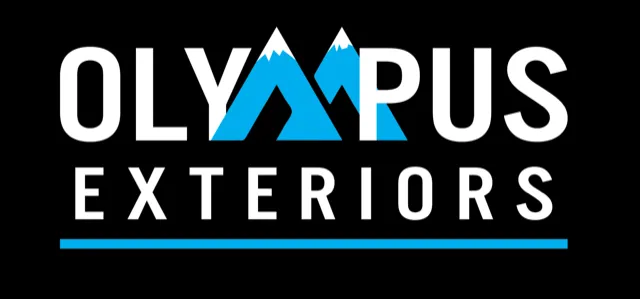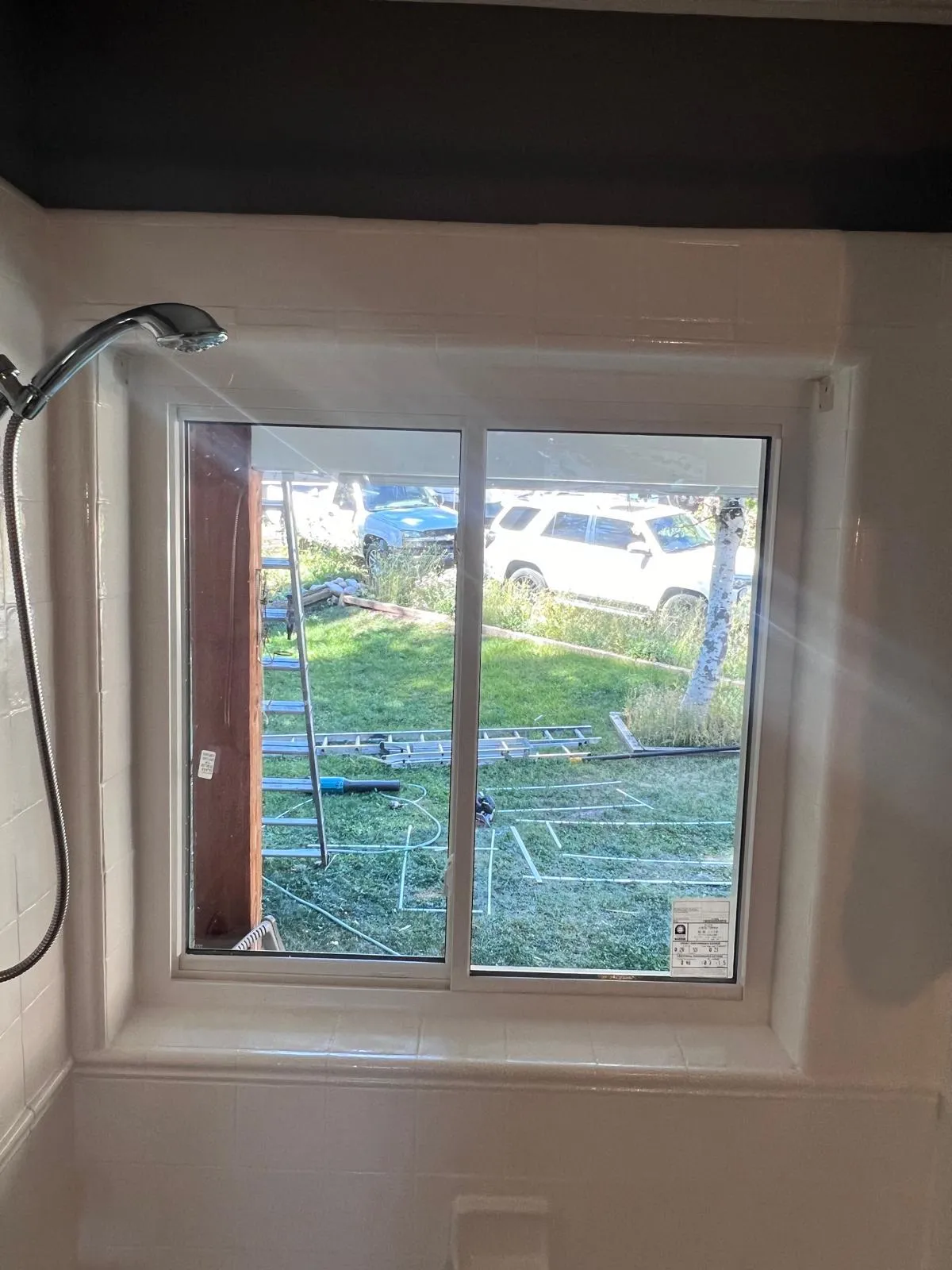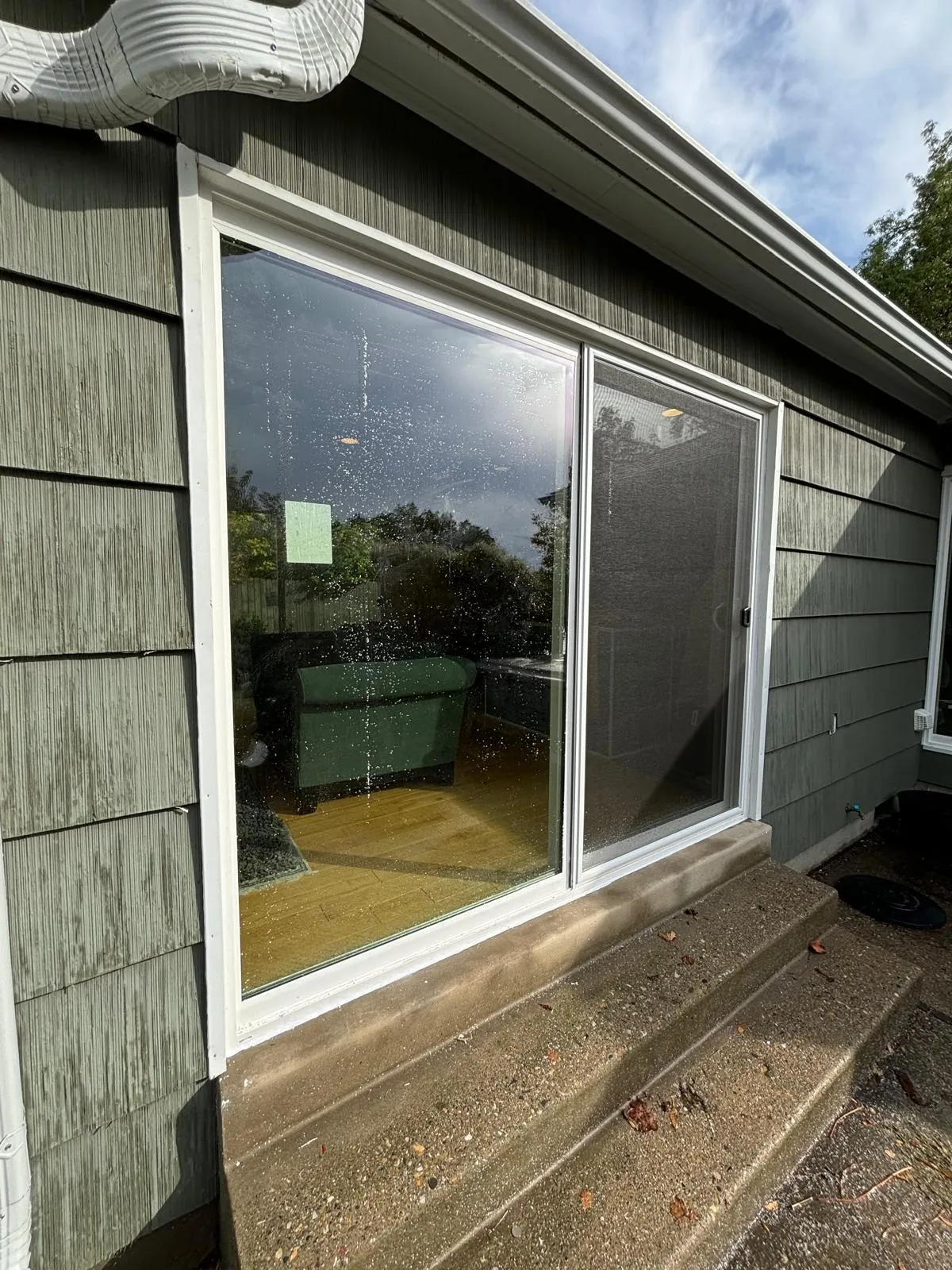Services > Siding
Siding
Vinyl siding is a popular choice among homeowners looking to enhance their property's aesthetic appeal while ensuring long-lasting durability. Known for its impressive resistance to weathering, vinyl siding is crafted to withstand harsh environmental conditions, from intense sunlight to extreme cold, without warping or cracking. This resilience gives homeowners peace of mind, knowing their investment maintains its appearance and functionality over time.
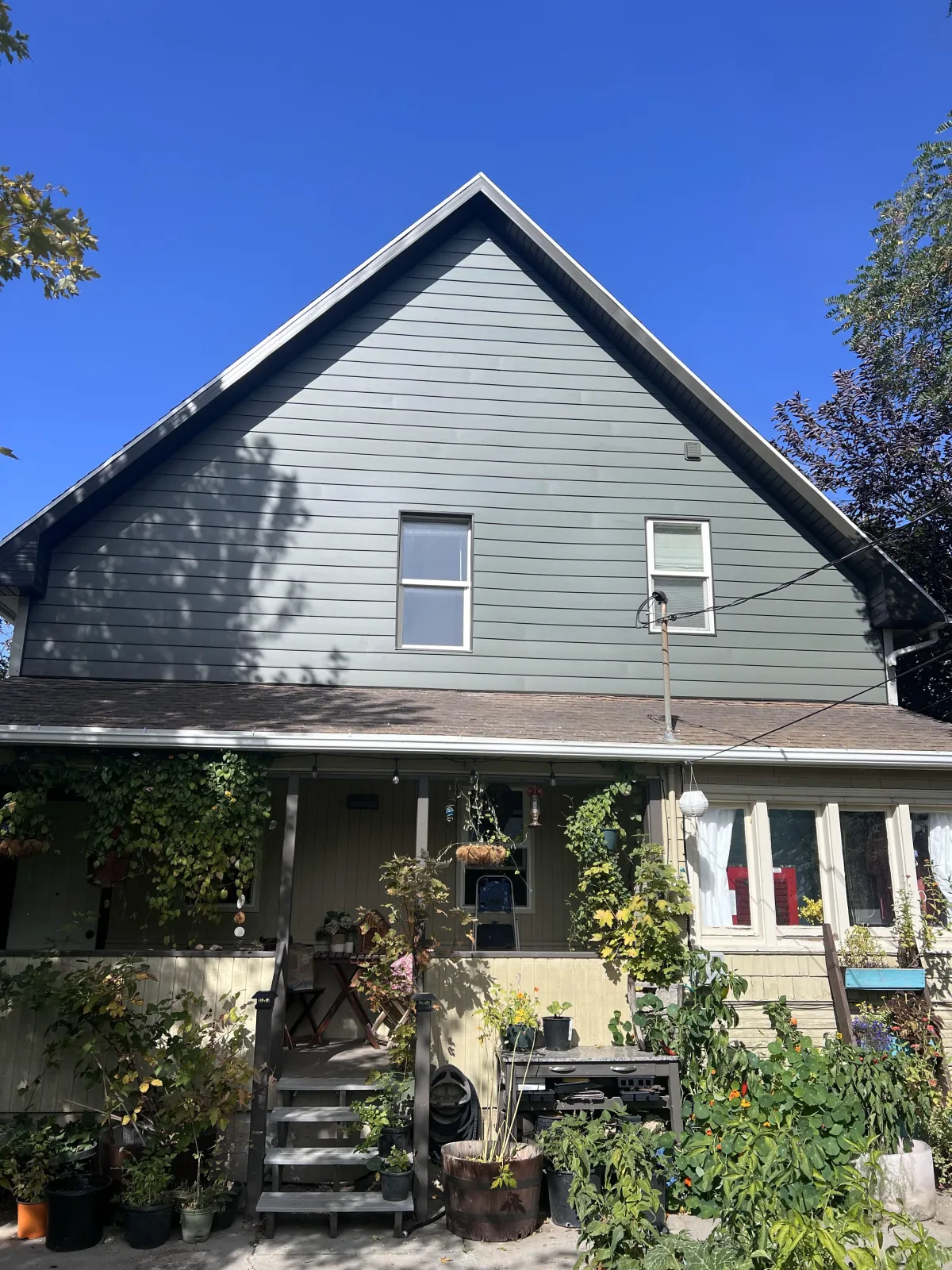
Why Choose Siding from Olympus Exteriors?
Vinyl siding has become a favored choice for homeowners due to its multitude of benefits that cater to both aesthetic appeal and practical functionality. First and foremost, its durability stands out—vinyl siding is resistant to the wear and tear caused by harsh weather conditions, including extreme temperatures, rain, and wind.
In addition to its durability, vinyl siding is renowned for its cost-effectiveness. Compared to other siding materials like wood or brick, vinyl is generally less expensive to purchase and install. This makes it an accessible option for many homeowners, yet it does not compromise on quality or longevity. Vinyl siding also offers superior versatility in terms of design. With a broad range of colors, styles, and textures available, homeowners can achieve virtually any look they desire, from contemporary to classic.
Vinyl siding contributes to energy efficiency, particularly when enhanced with insulation layers. This can lead to substantial savings on energy bills by improving a home's thermal envelope. Finally, its low maintenance requirement is a significant advantage, as vinyl does not require painting, sealing, or regular intensive cleaning.
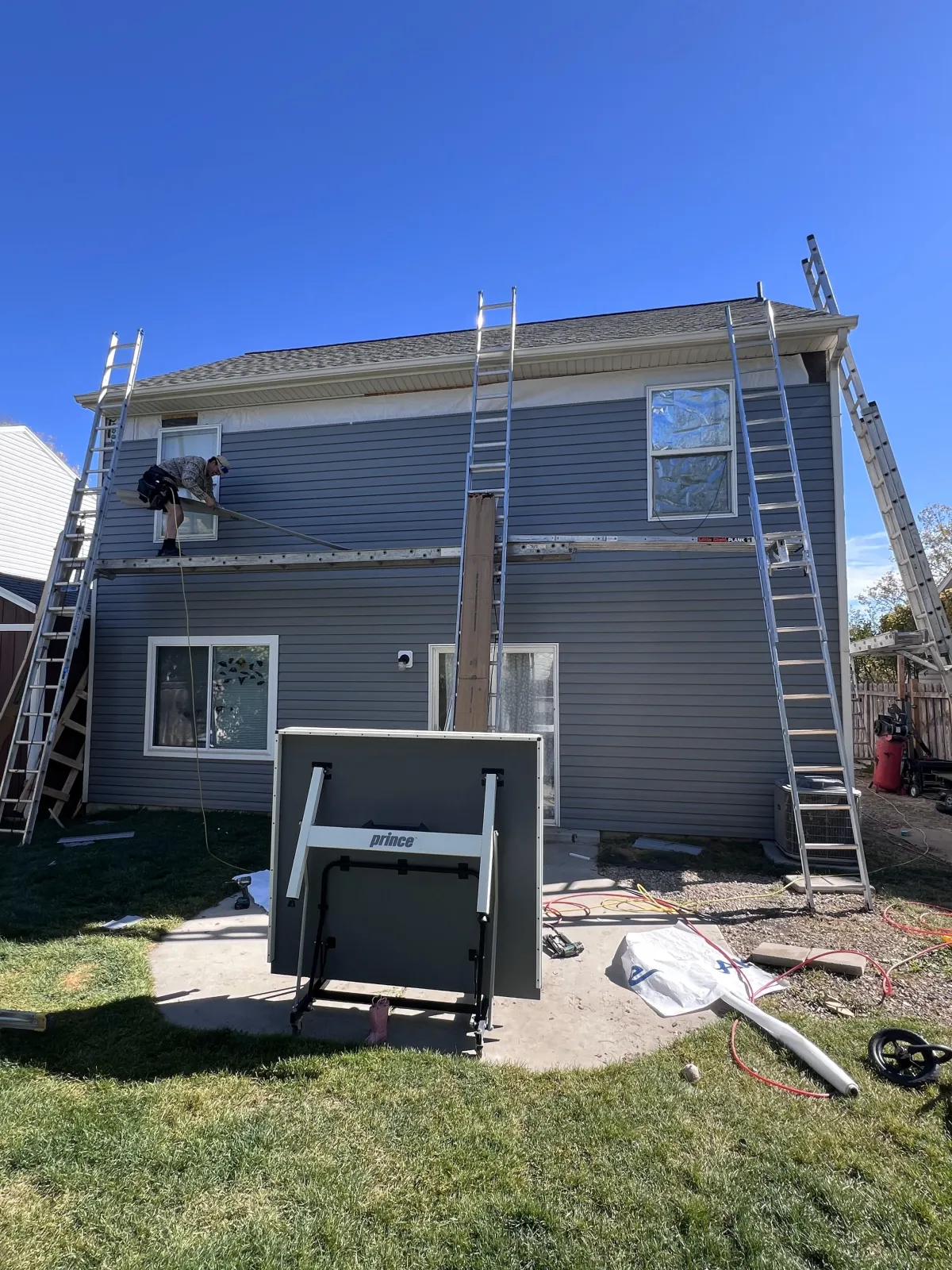
Cost of Siding
When evaluating the cost of siding, it's essential to consider both the initial investment and long-term expenses associated with different materials. Considering both the initial expenses and potential cost savings in maintenance can ensure a well-informed, cost-effective choice that aligns with long-term financial and functional goals.
While vinyl siding is often praised for its cost-effectiveness, there are several other materials available, each with its own price range and benefits.
Services > Siding

Siding
Vinyl siding is a popular choice among homeowners looking to enhance their property's aesthetic appeal while ensuring long-lasting durability. Known for its impressive resistance to weathering, vinyl siding is crafted to withstand harsh environmental conditions, from intense sunlight to extreme cold, without warping or cracking. This resilience gives homeowners peace of mind, knowing their investment maintains its appearance and functionality over time.
Why Choose Siding from Olympus Exteriors?
Vinyl siding has become a favored choice for homeowners due to its multitude of benefits that cater to both aesthetic appeal and practical functionality. First and foremost, its durability stands out—vinyl siding is resistant to the wear and tear caused by harsh weather conditions, including extreme temperatures, rain, and wind.
In addition to its durability, vinyl siding is renowned for its cost-effectiveness. Compared to other siding materials like wood or brick, vinyl is generally less expensive to purchase and install. This makes it an accessible option for many homeowners, yet it does not compromise on quality or longevity. Vinyl siding also offers superior versatility in terms of design. With a broad range of colors, styles, and textures available, homeowners can achieve virtually any look they desire, from contemporary to classic.
Vinyl siding contributes to energy efficiency, particularly when enhanced with insulation layers. This can lead to substantial savings on energy bills by improving a home's thermal envelope. Finally, its low maintenance requirement is a significant advantage, as vinyl does not require painting, sealing, or regular intensive cleaning.
Cost of Siding

When evaluating the cost of siding, it's essential to consider both the initial investment and long-term expenses associated with different materials. Considering both the initial expenses and potential cost savings in maintenance can ensure a well-informed, cost-effective choice that aligns with long-term financial and functional goals.
While vinyl siding is often praised for its cost-effectiveness, there are several other materials available, each with its own price range and benefits.
Recent Siding
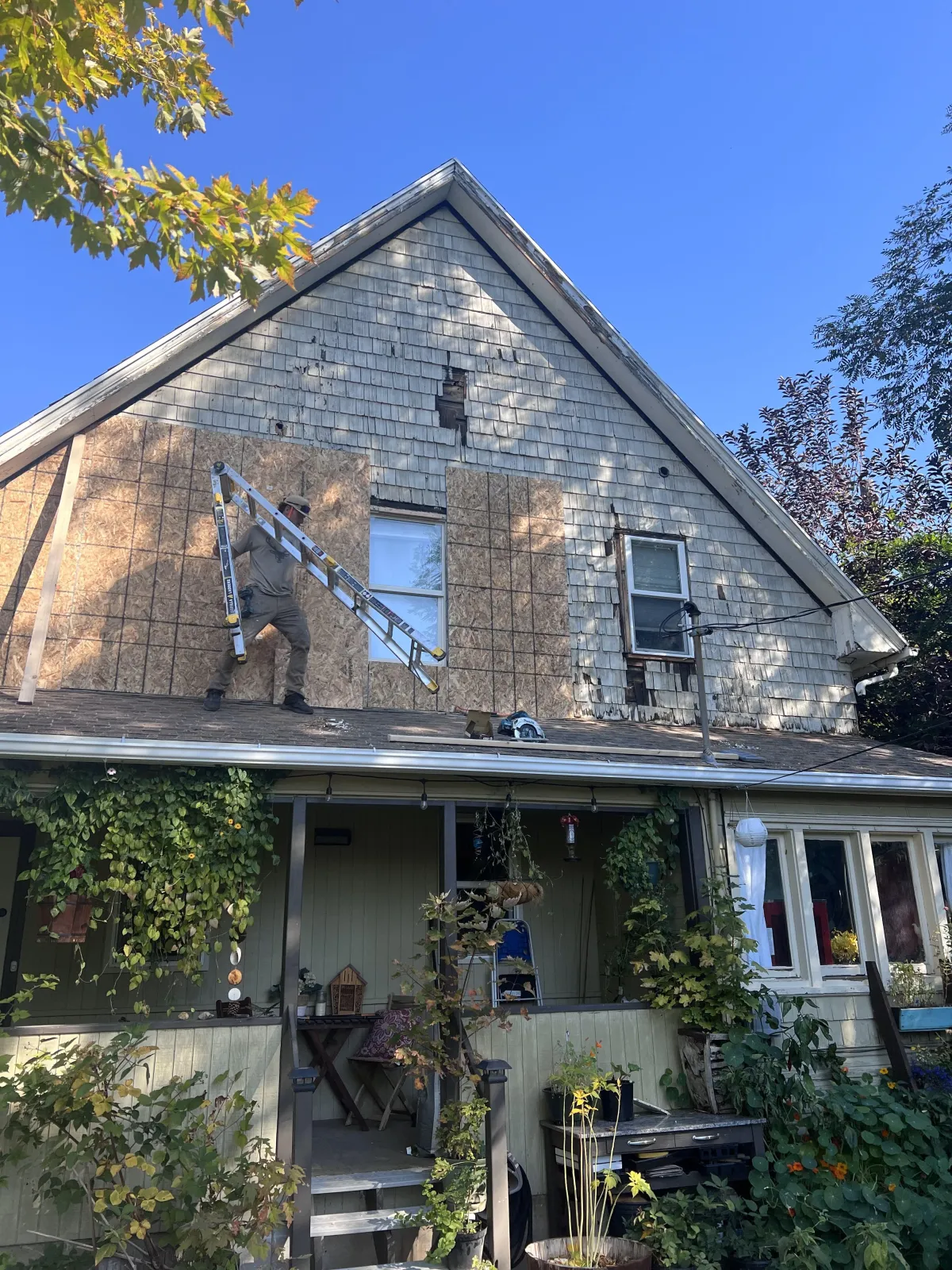

Recent Siding


Our Process For
Siding
Step 1: Remove Old Siding
Begin by carefully removing the old siding. Use a pry bar or claw hammer to gently detach the siding panels starting from the top and working your way down. Take care not to damage any underlying structures, such as the sheathing. As you remove each panel, ensure that all nails and fasteners are also removed to prevent any obstructions or damage to the new siding.


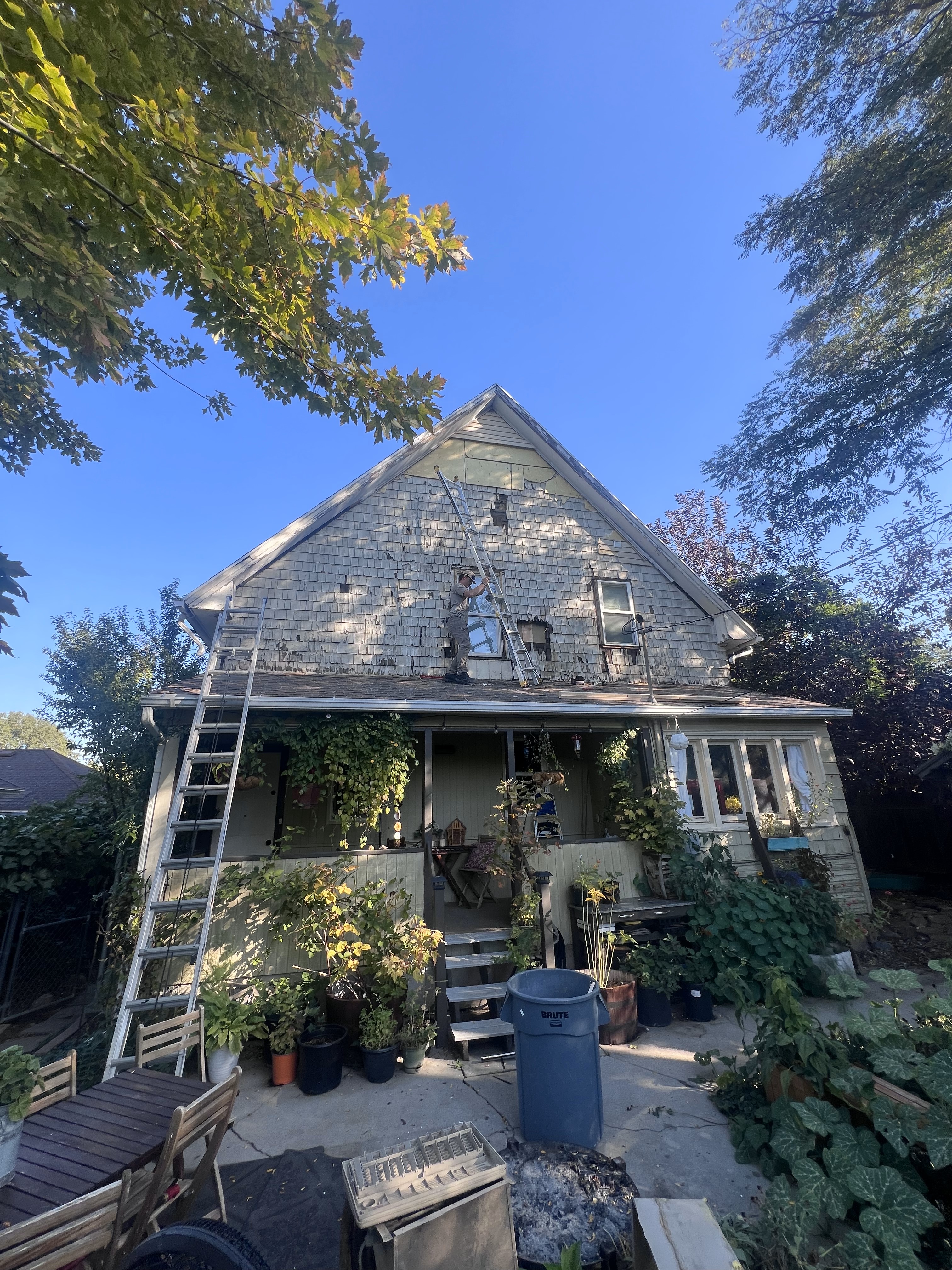
Step 2: Inspect And Prepare The Surface
Once the old siding has been removed, thoroughly inspect the underlying structure for any signs of damage, rot, or deterioration. Repair or replace any compromised sheathing to ensure a solid and secure surface for the new siding. Additionally, check for and address any moisture barriers or insulation needs before proceeding.

Step 3: Install New Siding
Begin installing the new siding from the bottom up, ensuring each panel is perfectly aligned and securely fastened with nails or screws according to the manufacturer's recommendations. Overlap panels appropriately for the specific siding type to prevent water infiltration and ensure durability. Regularly check your alignment as you work upwards, and trim panels as necessary around windows, doors, and corners for a flawless finish.
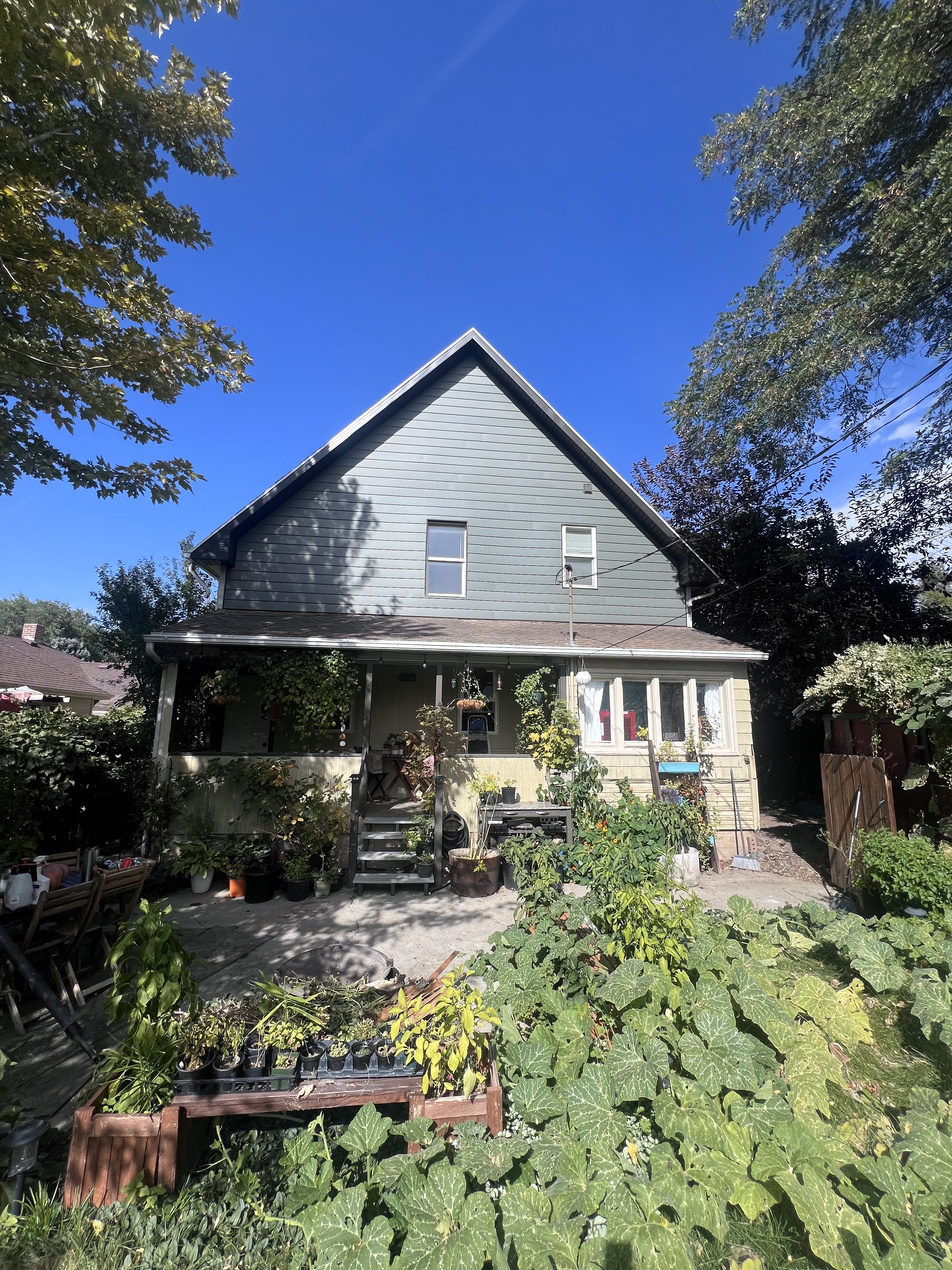
Our Process For Siding
Step 1: Remove Old Siding

Begin by carefully removing the old siding. Use a pry bar or claw hammer to gently detach the siding panels starting from the top and working your way down. Take care not to damage any underlying structures, such as the sheathing. As you remove each panel, ensure that all nails and fasteners are also removed to prevent any obstructions or damage to the new siding.

Step 2: Inspect And Prepare The Surface

Once the old siding has been removed, thoroughly inspect the underlying structure for any signs of damage, rot, or deterioration. Repair or replace any compromised sheathing to ensure a solid and secure surface for the new siding. Additionally, check for and address any moisture barriers or insulation needs before proceeding.

Step 3: Install New Siding

Begin installing the new siding from the bottom up, ensuring each panel is perfectly aligned and securely fastened with nails or screws according to the manufacturer's recommendations. Overlap panels appropriately for the specific siding type to prevent water infiltration and ensure durability. Regularly check your alignment as you work upwards, and trim panels as necessary around windows, doors, and corners for a flawless finish.
Things to Know About
Siding
Insulation Properties
Siding isn't just for aesthetics; it can also contribute to your home's insulation. Some siding materials, like insulated vinyl, include built-in insulation that can help reduce energy costs by maintaining consistent indoor temperatures.
Maintenance Requirements
Different siding materials demand varying levels of maintenance. Vinyl siding typically requires the least upkeep, needing only occasional cleaning, while wood siding may require painting or staining every few years to maintain its appearance and prevent rot.
Weather Resilience
Your region's climate plays a significant role in siding performance. Materials like fiber cement and metal are particularly robust against extreme weather conditions, such as high winds or hail, making them ideal for areas prone to severe weather.
Aesthetic Versatility
The choice of siding can drastically alter your home's appearance. From the modern, sleek look of metal siding to the rustic charm of wood, each material offers a unique aesthetic that can be tailored with various colors and finishes to match your design preferences.
If sustainability is a concern, consider the environmental impact of your siding choice. Some options, like fiber cement and metal, are made from recyclable materials or require fewer resources to produce, making them more eco-friendly compared to traditional wood siding.
Contact Us
Service Hours
Social Media
Monday - Friday: 8:00 AM - 7:00 PM
Saturday: 8:00 AM - 7:00 PM
Sunday: Closed
Things to Know About Siding
Insulation Properties
Siding isn't just for aesthetics; it can also contribute to your home's insulation. Some siding materials, like insulated vinyl, include built-in insulation that can help reduce energy costs by maintaining consistent indoor temperatures.
Maintenance Requirements
Different siding materials demand varying levels of maintenance. Vinyl siding typically requires the least upkeep, needing only occasional cleaning, while wood siding may require painting or staining every few years to maintain its appearance and prevent rot.
Weather Resilience
Your region's climate plays a significant role in siding performance. Materials like fiber cement and metal are particularly robust against extreme weather conditions, such as high winds or hail, making them ideal for areas prone to severe weather.
Aesthetic Versatility
The choice of siding can drastically alter your home's appearance. From the modern, sleek look of metal siding to the rustic charm of wood, each material offers a unique aesthetic that can be tailored with various colors and finishes to match your design preferences.
If sustainability is a concern, consider the environmental impact of your siding choice. Some options, like fiber cement and metal, are made from recyclable materials or require fewer resources to produce, making them more eco-friendly compared to traditional wood siding.
Contact Us
435-291-8729
122 W 900 S
Santaquin, Utah 84655
Service Hours
Monday - Friday: 9:00 AM - 5:00 PM
Saturday: 10:00 AM - 2:00 PM
Sunday: Closed
Social Media
2025 | Olympus Exteriors | Sitemap
